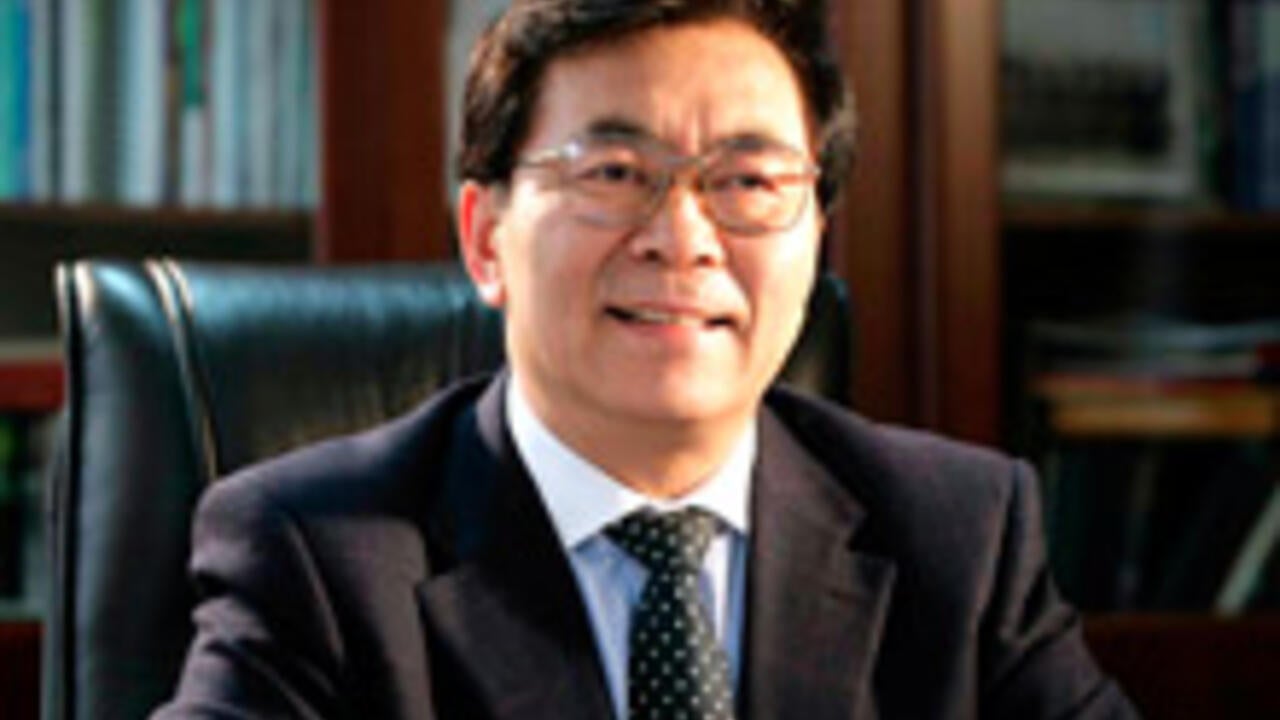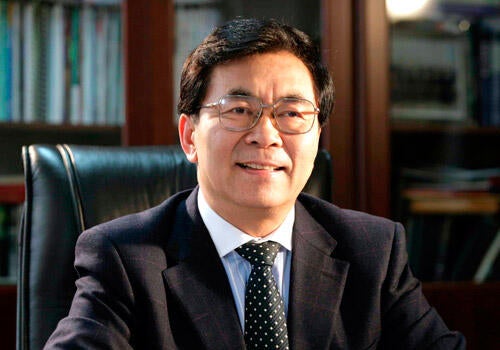
President of Chinese Academy of Sciences receives honorary doctorate
Chunli Bai will also deliver a seminar about nanoscience and nanotechnology in China

Chunli Bai will also deliver a seminar about nanoscience and nanotechnology in China
By Staff Faculty of Engineering The president of the Chinese Academy of Sciences (CAS) will receive an honorary doctorate of engineering during Waterloo’s convocation ceremonies on Saturday, June 17, 2017. Chunli Bai is a highly acclaimed academic who has achieved international recognition for advancements in nanoscience and nanotechnology from a systems perspective.
The president of the Chinese Academy of Sciences (CAS) will receive an honorary doctorate of engineering during Waterloo’s convocation ceremonies on Saturday, June 17, 2017. Chunli Bai is a highly acclaimed academic who has achieved international recognition for advancements in nanoscience and nanotechnology from a systems perspective.
As an academic, Bai is one of the pioneers in the field of nanoscience. He successfully designed and developed China's first atomic force microscope (AFM), scanning tunnelling microscope (STM), low-temperature STM, ultrahigh-vacuum STM and ballistic electron emission microscope. These led to the earliest technological tools in the country for manipulating single atoms and molecules, and characterizing surfaces and interfaces.
The CAS, which Bai has led since 2011, has 104 research institutes spread across China and leads two universities and three associated supporting organizations, in addition to 12 regional CAS management offices.
Bai is also the president of the Presidium of the Academic Divisions of CAS and the president of The World Academy of Sciences (TWAS).
Bai has made seminal contributions to China's nanoscience and nanotechnology research both as a scientist and a policy-maker. As the chief scientist of the National Steering Committee for Nanoscience and Related Technology, he has initiated and coordinated a number of key national projects on nanoscience and nanotechnology. He is the founding director and council chairman of the National Center for Nanoscience and Technology in China. Bai also served as the founding chairperson of the Special Committee on Nanotechnology of the China National Accreditation Board for Laboratories in 2004, and the chairperson of the National Nanotechnology Standardization Committee in 2005.
He is a recipient of the UNESCO first medal “for contributions to the development of nanoscience and nanotechnology,” the International Medal awarded by the London-based Society of Chemical Industry, and the TWAS 2002 Medal Lecture in Chemical Sciences.
While on campus on June 17, Bai will also deliver a seminar on the structure and activities of the Chinese Academy of Sciences at the Mike & Ophelia Lazaridis Quantum-Nano Centre from 3 to 4 pm.

Read more
Here are the people and events behind some of this year’s most compelling Waterloo stories

Read more
Waterloo Engineering community honours impact and innovation at annual awards dinner

Read more
Meet five exceptional Waterloo graduate students crossing the convocation stage as Class of 2025 valedictorians
Read
Engineering stories
Visit
Waterloo Engineering home
Contact
Waterloo Engineering
The University of Waterloo acknowledges that much of our work takes place on the traditional territory of the Neutral, Anishinaabeg, and Haudenosaunee peoples. Our main campus is situated on the Haldimand Tract, the land granted to the Six Nations that includes six miles on each side of the Grand River. Our active work toward reconciliation takes place across our campuses through research, learning, teaching, and community building, and is co-ordinated within the Office of Indigenous Relations.